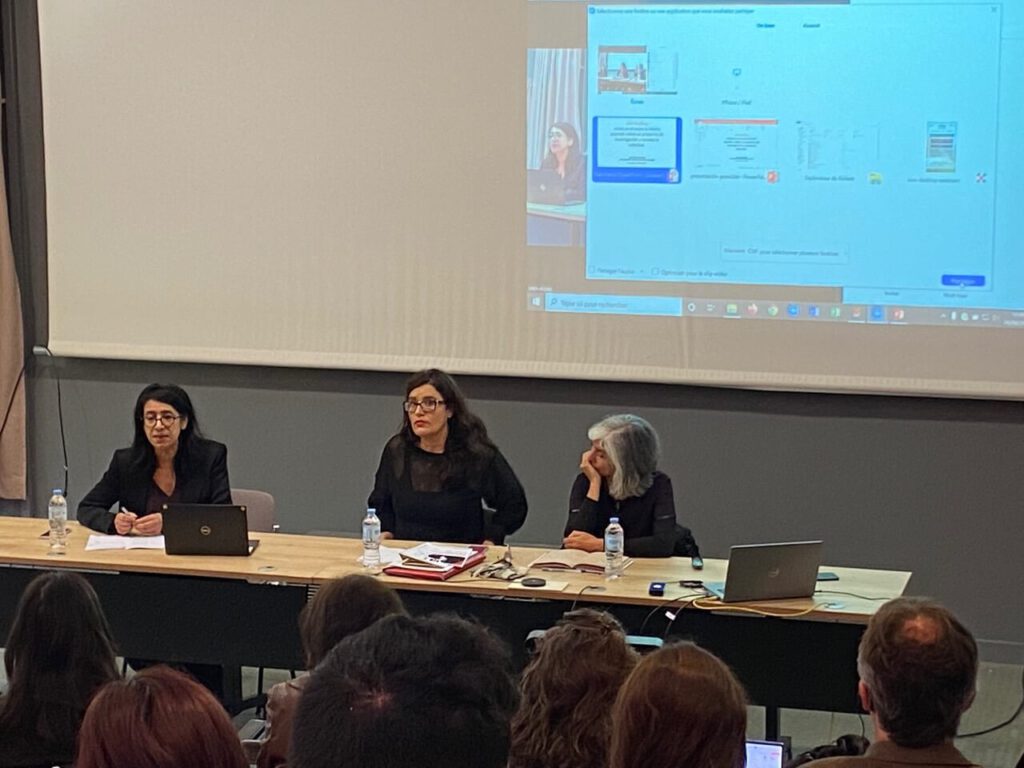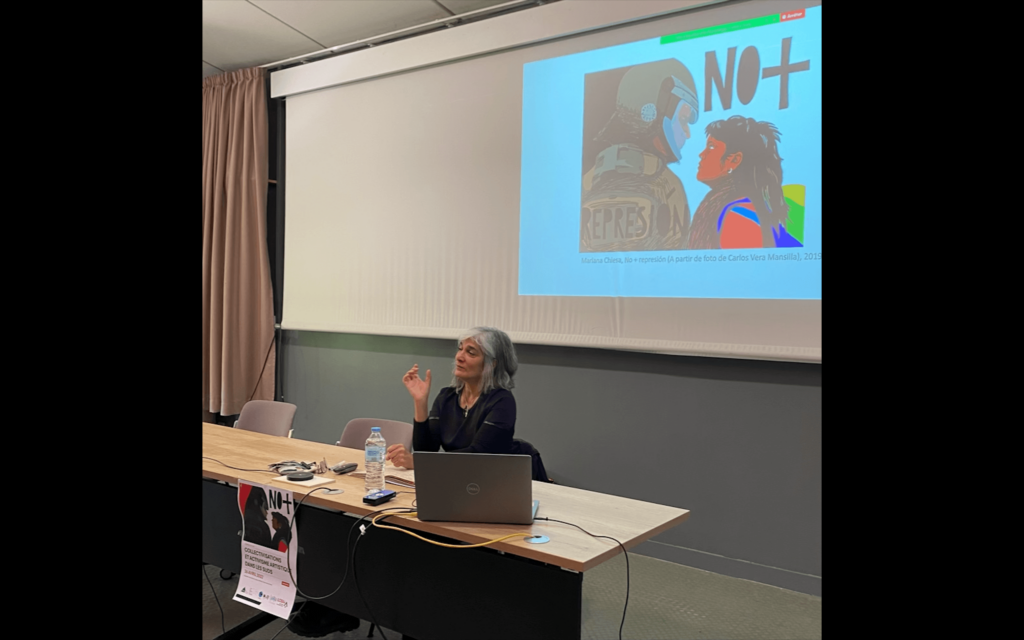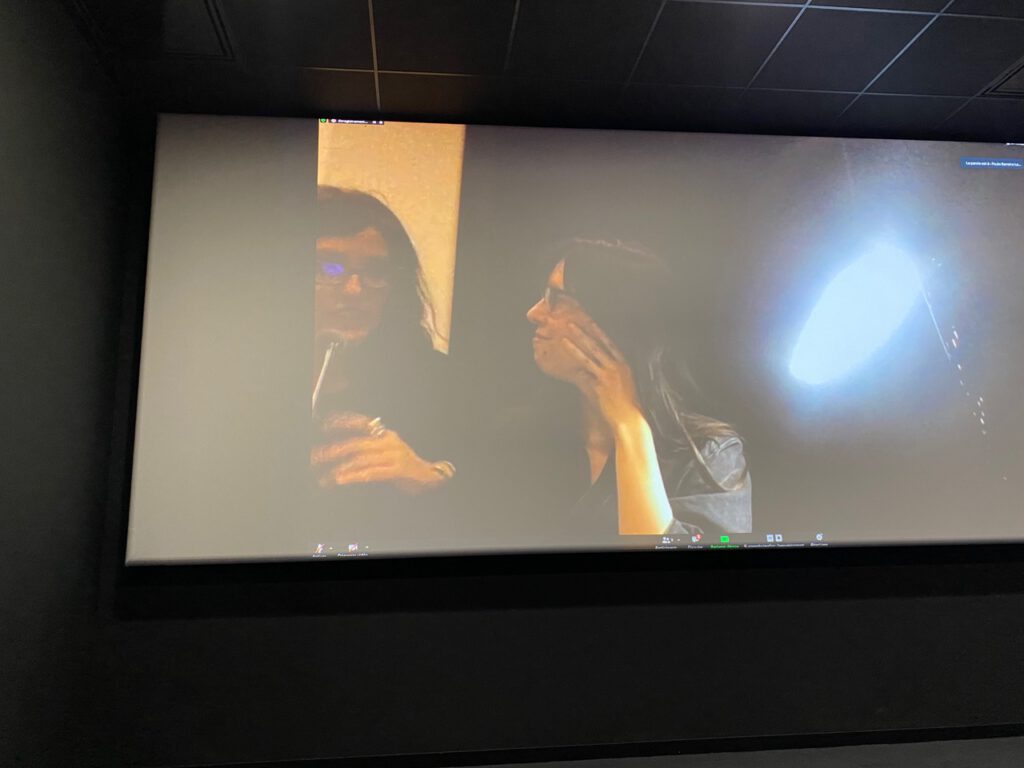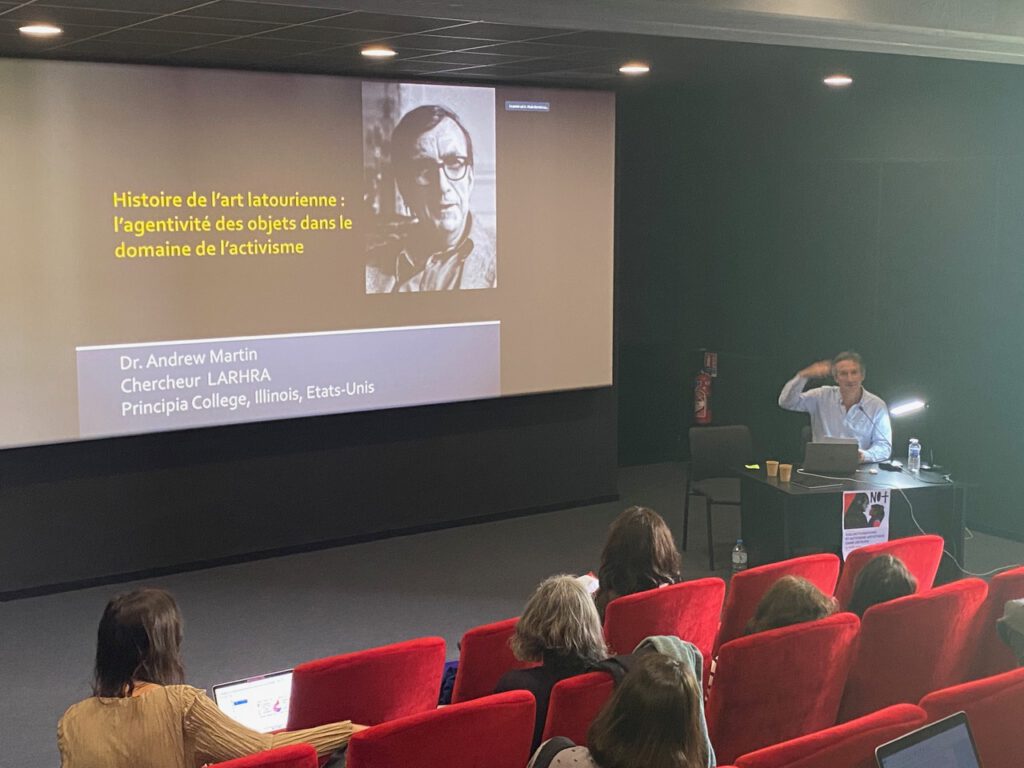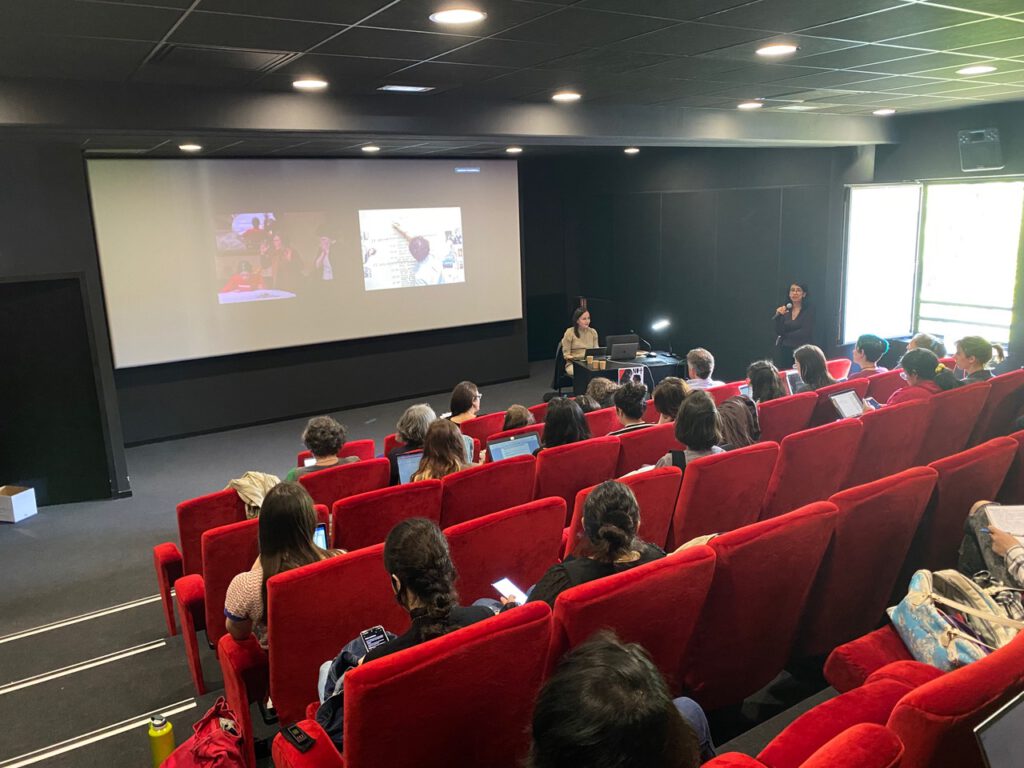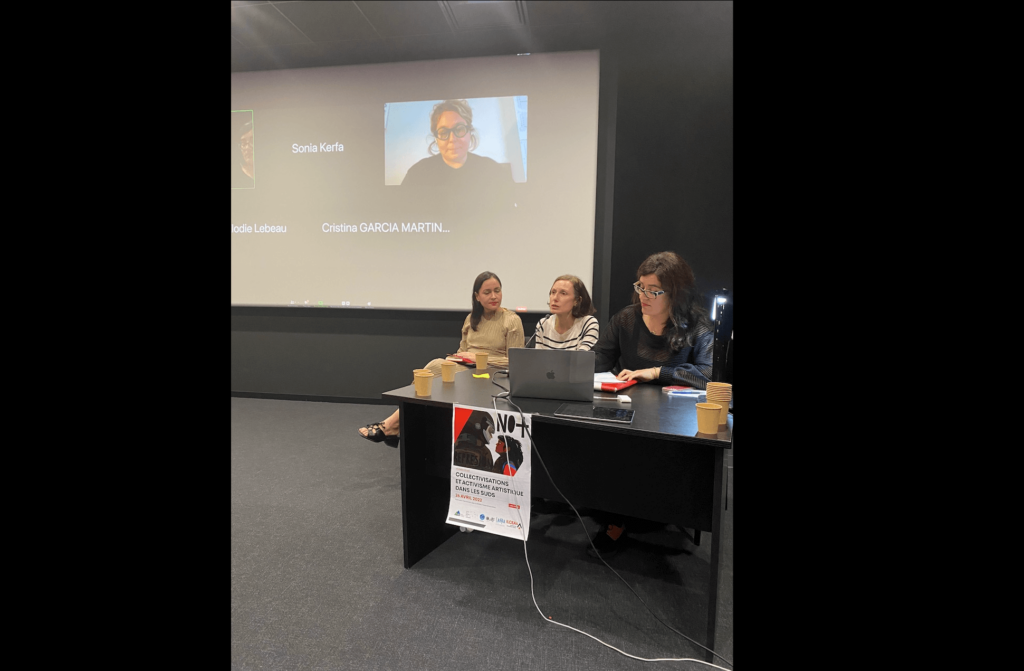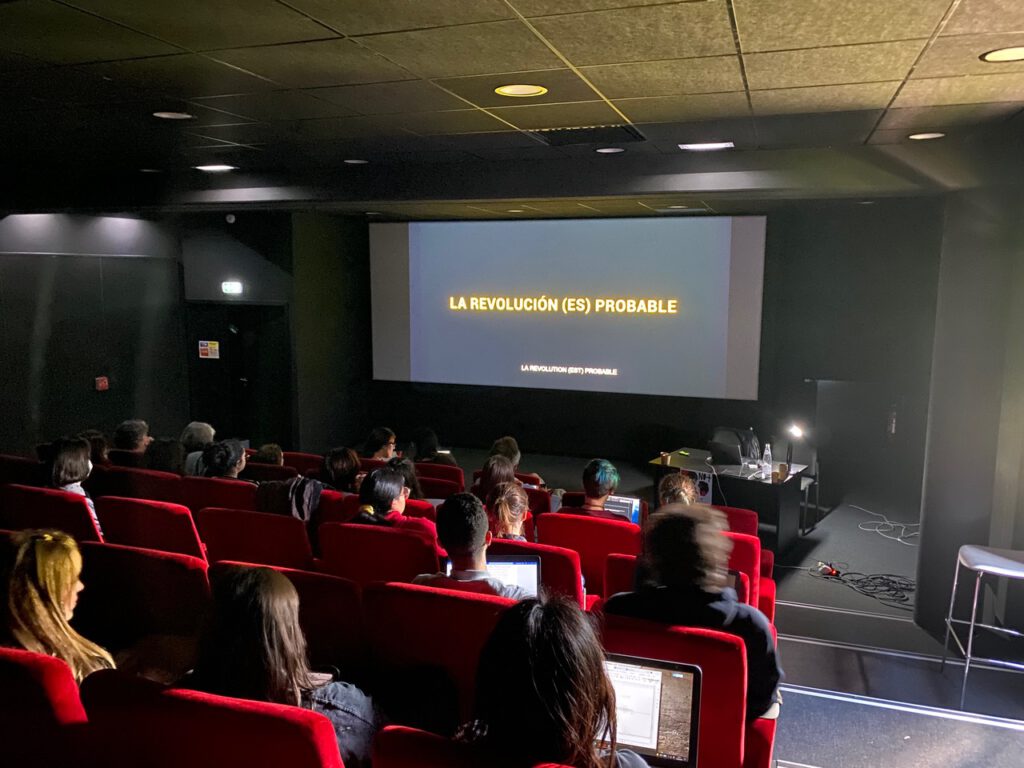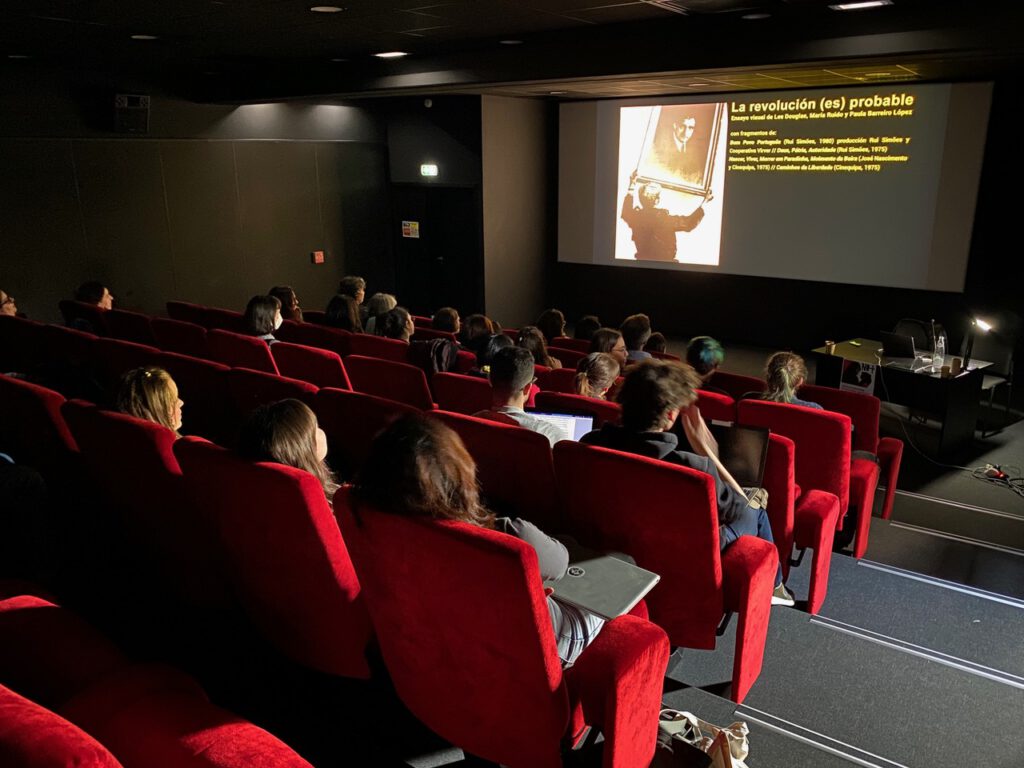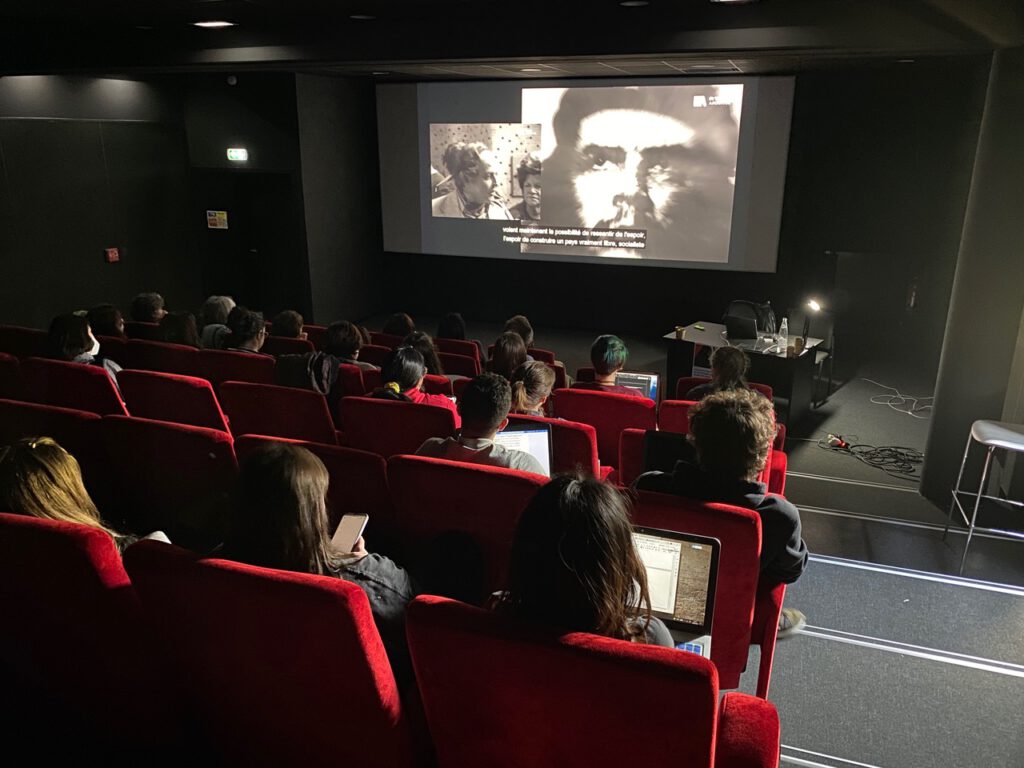Seminar
Collectivization and artistic activism in the South
26 April 2022
Maison des Sciences de l’Homme / Maison de la Création et de l’Innovation – Grenoble
Even if contemporary art has been widely studied in its capacity for contestation, stories of social claims, of a collective nature, have rarely given the most important place to artistic productions, created in a common and popular movement. However, the repertoires of action have a determining aesthetic dimension of which Act Up, in France, has been as a significant example in its forms of fighting AIDS (Balasinski and Mathieu, 2020).
In recent years, highly expressive struggles have been carried out in the South, where even this denomination gives the direction to the poor countries on Latin America, formerly known as the Third World (Gervais-Lambony et Landy, 2007). Today, more precisely in Latin America, many countries, in the forefront of massive claims, make their voices heard loudly. The taking of streets and plazas – which are par excellence a meeting space for people, (Lefebvre, 1968)- gives us a broad example of the ravages, in people and in nature, of capitalism and racial and social discrimination. Belonging to one of the most unequal continents in the world, Latin American societies, marked by decades of unbridled liberalism and oppression of all kinds (women, indigenous communities, and Afro-descendant groups) have expressed with ingenuity and creativity the desire for social justice and dignity. As in the times of dictatorships, which left large and deep scars. Public space, cities and the countryside have seen the flourishing of unusual and twisted slogans, designs, graffiti, posters, performances, and objects that create or revitalize shared imaginaries. The mobilizations have also been made in the prism of these modes of collective action, which put into action an “original praxis, more embodied, less theoretical and restrictive by academic norms.”, taking up Lissell Quiroz’s analysis of Latin American feminisms. (Quiroz, 2021).
This study day will examine these responses that, through creative gesture, seek to “repair what has been broken” (Mbembe, 2020). To begin with, Ana Longoni’s conference will highlight the work of researchers who, through a vast collective project, take the pulse of these forms of vindictive expression and rethink the way of exhibiting them. Next, Julia Ramírez-Blanco will give us an unprecedented light on “Extractivism”, a logic of massive extraction of which we are offered a vision that separates economy and ecology, but which she will rethink in the light of aesthetics. (Monange y Flipo, 2019). Subsequently, Andrew Martin will return to the theme of militant art as seen and reassessed by Bruno Latour and will underline its power throughout history.
It is from a historical perspective that the film La Revolución Probable, produced collectively by Ruido, Douglas and Barreiro López, makes a reminder return to the PREC (Revolutionary Process in Course), one of the most audacious in Portuguese history. Better known as the “Carnation Revolution”, this transition to democracy, inseparable from the liberalization movements of the former colonies, gave rise to “the broadest and deepest social movement in post-war Europe”. (De Sousa Santos, named by Léon, Schefer et Robert-Gonçalves, 2020). It has seen a significant number of film productions emerge, often at the initiative of filmmakers’ cooperatives. It has seen a significant number of film productions emerge, often at the initiative of filmmakers’ cooperatives with the aim of capturing the revolutionary spirit, as in Portugal’s “radical interrogation” critical project (Lemières, 2005), through which the collective takes up and highlights this spirit in this film essay, unpublished in France, considering the experience and influence of documentary filmmaker María Ruido.
To introduce it and place it in the genealogy of PREC cinema, Raquel Schefer will speak, who will review the history of these collectivization in southern Europe in the mirror of a transforming cinema.
Poster Gallery MultimediaMorning : Amphithéâtre de la MSH, Maison des Sciences de l’Homme, Campus de Grenoble
9:45 – 10:00 Introduction by Paula Barreiro López (Université Grenoble Alpes) and Sonia Kerfa (Université Grenoble Alpes)
10:00 – 11:00 Ana Longoni (Universidad de Buenos Aires), Giro Gráfico, como en el muro la hiedra: apuntes sobre un proyecto de investigación y curaduría colectiva
11:00 – 11:30 Questions
11:30 – 13:30 Break
Afternoon : MaCI, Maison de la Création et de l’Innovation, projection room floor 2
13:30 – 14:15 Julia Ramírez-Blanco (Universidad de Barcelona), Luttes contre les grandes infrastructures : poétique et politique des mouvements d’action directe
14:15 – 14:40 Questions
14:40 – 15:20 Andrew Martin (Principia College, Etats-Unis), Latourian Art History: Object Agency in Activism
15:40 – 16:15 Coffee Break
16:20-17:00 Raquel Schefer (Universidade Nova de Lisboa / University of the Western Cape), Révolution et cinéma au Portugal
17:00 – 17:20 Questions
17:20-18:30 Presentation and projection of the film-essay La revolución (es) probable [The revolution (is) possible] (2021, 30 min) directed by Lee Douglas (Universidade Nova de Lisboa), María Ruido (Universitat de Barcelona) and Paula Barreiro López (Université Grenoble Alpes). Moderation Raquel Schefer (Universidade Nova de Lisboa / University of the Western Cape).
18:30 – 19:00 Questions
19:00 – 19:15 Conclusions
Gallery
Multimedia
Throughout the day, possibility to connect via zoom and simultaneous translation.
Direction: Paula Barreiro López (Université Grenoble Alpes) et Sonia Kerfa (Université Grenoble Alpes)
Coordination: Cristina García Martínez (communication et diffusion, logistique) et Tobias Locker (technique, logistique). Avec l’aide technique d’Antonin Duhoux (MSH) pour l’interprétation en simultanée. Traductrices : Silvia Palà et Adele Martin.
Interns, Master 1 Hispanic Art : Jairo Alejandro Escobar Torres (traduction trilingue), Edith Marisela Marquez Duque (logistique, modération visio-conférence) et Melina Negrello (relations avec le public)
Image: Mariana Chiesa, No + represión, (A partir de foto de Carlos Vera Mansilla), 30 x 42 cm, 2019


